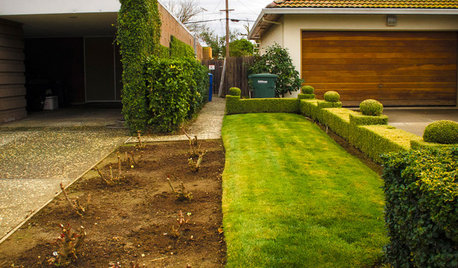Landscape Design School MN /Twin Cities
grapevinegal
10 years ago
Related Stories

ARCHITECTURECity View: Minneapolis Design Style
Forget 'fly-over state.' Twin City residents have sophisticated design tastes, embrace the outdoors and create retreats at home
Full Story
TRAVEL BY DESIGNHouzz Travel Guide: New York City for Design Lovers
Where to stay, shop, eat and explore in the Big Apple, from a design-minded architect who lives there
Full Story
EXTERIORSWhere Front Yards Collide: Property Lines in Pictures
Some could be twins; others channel the Odd Couple. You may never look at property boundaries the same way again
Full Story
CITY GUIDESTravel Guide: San Francisco for Design Lovers
Visionary architecture, great museums, amazing food and shops — you don't have to leave your heart here to take inspiration home
Full Story
RUSTIC STYLE10 Cabin Rental Basics for City Slickers
Stay warm, dry and safe while you’re enjoying winter cabin life with this valuable advice
Full Story
HOME INNOVATIONSNow Approaching the Emerald City
Urbanites are spraying moss graffiti on walls and covering roofs in plants — and city regulators and designers are supporting the cause
Full Story
HOUZZ TOURSMy Houzz: See How a Garden Author Brings Nature to the City
Garden designer and author Baylor Chapman shows her love of nature in her San Francisco apartment and deck
Full Story
MOST POPULARHouzz Tour: A Playful Home Drawn Up by 8-Year-Old Twins
Plans for this innovative tower home in Melbourne were going nowhere — until the homeowners’ twins came to the rescue
Full Story
DECORATING GUIDESCity View: History Meets Modern Tastes in St. Louis
This Missouri city celebrates a heritage that goes way back, but its architecture and interiors are moving decidedly forward
Full Story
APARTMENTSHouzz Tour: Life in a Converted School Building
A son renovates a space his mother can call her own when she comes to visit
Full StoryMore Discussions










oldgraymare
gardengal48 (PNW Z8/9)
Related Professionals
Lake Oswego Landscape Architects & Landscape Designers · Norton Shores Landscape Architects & Landscape Designers · Waunakee Landscape Architects & Landscape Designers · Allentown Landscape Contractors · Gloucester Landscape Contractors · North Highlands Landscape Contractors · Streamwood Landscape Contractors · Teaneck Landscape Contractors · Northlake Landscape Contractors · Alexandria Decks, Patios & Outdoor Enclosures · Bainbridge Island Decks, Patios & Outdoor Enclosures · Crestline Decks, Patios & Outdoor Enclosures · Greeley Decks, Patios & Outdoor Enclosures · Denton Swimming Pool Builders · Los Alamitos Swimming Pool Buildersa.girl.named.max
a.girl.named.max
grapevinegalOriginal Author
gardengal48 (PNW Z8/9)
grapevinegalOriginal Author
Yardvaark
grapevinegalOriginal Author
Yardvaark
gardengal48 (PNW Z8/9)
Yardvaark
gardengal48 (PNW Z8/9)
Yardvaark
grapevinegalOriginal Author
PKponder TX Z7B
Yardvaark
grapevinegalOriginal Author
gardengal48 (PNW Z8/9)
grapevinegalOriginal Author